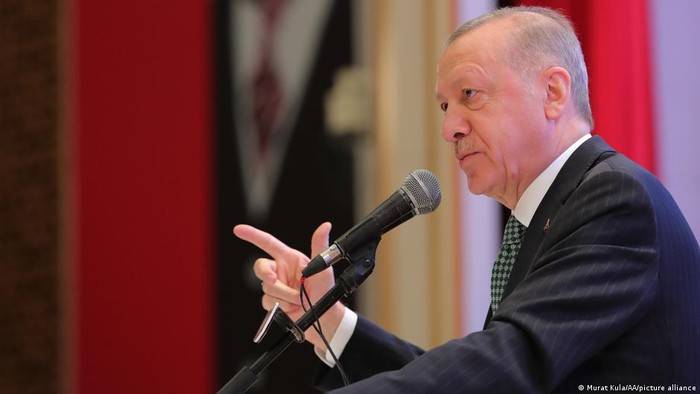
turki - The Ukraine war and rising energy costs have indeed led to price increases almost all over the world. But inflation in Turkey was already high even before the Ukrainian conflict broke out. In May according to official statistics the inflation rate has reached 73.5%, almost ten times higher than the inflation rate in Germany in the same month.
The Turkish Independent Inflation Research Group ENAG even said the actual figure was still much higher than the official figure announced by the government. They estimate inflation may be close to the 160% range. Turkey's official statistical agency TUIK in reaction filed a complaint against ENAG with the prosecutor's office, alleging that it spread figures deliberately designed to damage TUIK's reputation.
Turkey's economy did experience turbulent times long before Russia invaded Ukraine. The government's efforts to curb inflation have yielded nothing. The government, for example, raised the minimum wage drastically, but that only caused prices to rise even higher.
Triggered by rising gas and fuel prices
After the war broke out in Ukraine, prices skyrocketed, especially those related to energy and fuel. According to TUIK, transportation costs, which also include gas and diesel prices, rose 224% in May 2022 compared to May 2021. Since Turkey meets almost all of its energy needs with imports, the country has been hit hard by rising oil and gas prices on the world market.
Simultaneously, the prices of food and non-alcoholic beverages have almost doubled over the past year. Inflation in food and beverage prices reached 91.6% in May 2022. As a result, many citizens in Turkey are experiencing very real existential fears.
Economist Murat Birdal of Istanbul University, blamed the Central Bank of Turkey for this high inflation. Also a number of financial experts support Birdal's accusation that the Central Bank did not act independently. To reduce inflation soaring high, the Central Bank should raise interest rates. But interest rates have been left low because the Erdogan government wants them to. Murat Birdal said the inflation rate in Turkey could reach triple digits by the end of the year.
In fact, President Erdoan emphasized that inflation is the impact of too high interest rates, something that is contrary to the economic theory that has been the grip of other central banks. Because the head of the Central Bank refuted his argument, Erdogan changed the chairman of the Central Bank several times and finally put his relative in that important position.
Erdogan also replaced the head of TUIK, which calculated high inflation rates at the start of the year. At a rally last weekend, Erdogan reiterated his determination not to raise interest rates, and possibly lower them again.
Political economy is misguided
In September 2021, the Central Bank lowered interest rates following pressure from the Erdogan government. The impact is immediately visible on the financial markets. Many foreign investors fled the country, the economy deteriorated, and inflation has since skyrocketed relentlessly. The Turkish Lira has fallen. This year alone, the Turkish Lira has fallen 23% against the US dollar, whereas last year it had fallen 44%. A dramatic weakening of the currency makes imports of raw materials and energy more expensive.
President Erdogan hopes that his policy of low interest rates will attract foreign investors. Earlier this week he pledged to bring Turkey into the ranks of the world's top 10 economies. However, the President's interference in the policies of the Central Bank has diminished the credibility of the country's financial institutions in the eyes of foreign investors.
The recovery of the economy is indeed the most important agenda for Erdogan, because he wants to be re-elected in the 2023 elections. When Recep Tayyip Erdogan founded his AKP party in 2001, the situation was similar. Inflation rate in Turkey at that time reached 70 percent. A year later, the AKP managed to win a majority of seats in parliament in the elections. The voters at that time hoped that Erdogan could carry out reforms and bring improvements. The AKP at that time controlled 365 of the total 550 seats in parliament.
The current reality is different, many voters are disappointed and turn away from Erdogan and the AKP. However, this situation cannot necessarily be exploited by the still divided opposition.
(hp/as)


Posting Komentar